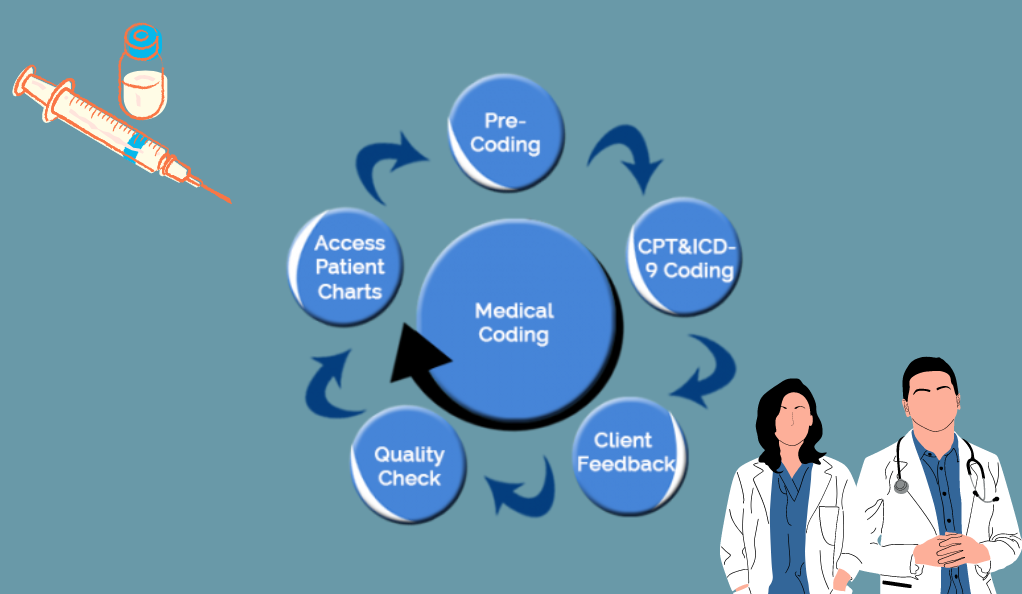Medical Billing Essentials: A Comprehensive Guide for New Clinicians
Navigating the world of medical billing can be quite challenging, especially for new clinicians who are just starting their careers in healthcare. Effective medical billing is essential for the financial health of a clinic and ensuring that healthcare providers receive proper reimbursement for their services. In this comprehensive guide, we will break down the essential aspects of medical billing, providing new clinicians with the knowledge they need to successfully manage this crucial aspect of their practice.
Understanding Medical Billing

Medical billing is the process of submitting and following up on claims with health insurance companies in order to receive payment for services rendered by healthcare providers. It involves various steps, from coding procedures to submitting claims and managing reimbursements. Proper understanding of this process is fundamental for accurate revenue generation.
Key Players in the Medical Billing Process
In the medical billing ecosystem, several key players contribute to the seamless processing of claims. These include clinicians, coders, billers, insurance companies, and patients. Each role has distinct responsibilities, and effective communication between them is vital for a successful billing cycle.
The Importance of Accurate Documentation
Accurate and detailed documentation of patient visits, treatments, and procedures is the foundation of proper medical billing. Clinicians must ensure that all relevant information is recorded clearly, as this documentation forms the basis for coding and billing procedures.
Common Medical Codes and Their Significance

Medical codes, such as Current Procedural Terminology (CPT) codes and International Classification of Diseases (ICD) codes, play a pivotal role in medical billing. These codes accurately represent diagnoses, treatments, and services provided, allowing for proper billing and claims processing.
Navigating Insurance Claims
Submitting insurance claims accurately and in a timely manner is essential for prompt reimbursement. Understanding the nuances of insurance policies, pre-authorization requirements, and claims submission procedures is crucial for minimizing claim rejections.
Dealing with Denials and Rejections
Claim denials and rejections are common in the medical billing process. New clinicians must be equipped to handle these situations effectively, identifying the reasons for denials and taking appropriate actions to rectify the issues and resubmit claims.
Electronic Health Records (EHR) and Billing Software
Incorporating electronic health records (EHR) and specialized billing software can significantly streamline the billing process. These tools help in accurate documentation, coding, and claims submission, reducing manual errors and enhancing efficiency.
Compliance and Legal Considerations
Adhering to legal and compliance standards, such as the Health Insurance Portability and Accountability Act (HIPAA), is crucial in medical billing. New clinicians must prioritize patient data security and follow the necessary protocols to avoid legal complications.
Patient Billing and Communication

Effective communication with patients regarding billing procedures, insurance coverage, and payment expectations is important for maintaining transparency and patient satisfaction. New clinicians should address patient concerns promptly and provide clear explanations of billing statements.
Managing Billing in a Small Clinic vs. Large Healthcare Facility
The approach to medical billing can vary based on the size of the healthcare facility. New clinicians should understand the nuances of managing billing in both small clinics and large healthcare facilities, considering factors such as resources, staffing, and patient volume.
Staying Updated with Industry Changes
The field of medical billing is dynamic, with frequent updates to codes, regulations, and procedures. New clinicians should actively engage in continuous education and stay informed about industry changes to ensure accurate billing practices.
Outsourcing vs. In-House Billing
New clinicians need to decide whether to manage billing in-house or outsource it to a specialized billing company. Each option has its pros and cons, and the decision should be based on factors such as cost, expertise, and the volume of billing.
Ensuring Ethical Billing Practices
Ethical billing practices involve accurately representing services rendered and avoiding fraudulent billing practices. New clinicians should prioritize ethical considerations to maintain their reputation and uphold professional integrity.
Conclusion
In the realm of healthcare, understanding medical billing is as vital as providing quality patient care. New clinicians who grasp the essentials of medical billing can ensure the financial stability of their practice while adhering to legal and ethical standards. By following the principles outlined in this guide, clinicians can navigate the complexities of medical billing with confidence.
FAQs
CPT codes, or Current Procedural Terminology codes, are standardized codes used to represent medical procedures and services in billing and claims processing. They ensure accurate billing and effective communication between healthcare providers and insurers.
Claim denials can be minimized by ensuring accurate documentation, verifying insurance coverage, submitting claims on time, and addressing any issues promptly. Regular training and staying updated on industry changes also contribute to reducing denials.
Outsourcing medical billing can be beneficial for new clinicians, as it allows them to focus on patient care while experts handle billing processes. However, the decision should be based on factors like cost, control, and the complexity of billing.
EHR systems streamline medical billing by integrating patient information, diagnoses, and procedures into a digital format. This reduces manual errors, enhances accuracy, and facilitates seamless claims submission.
New clinicians can stay updated by attending workshops, webinars, and conferences focused on medical billing. Online resources provided by reputable organizations and industry publications also offer valuable insights into the latest changes.
